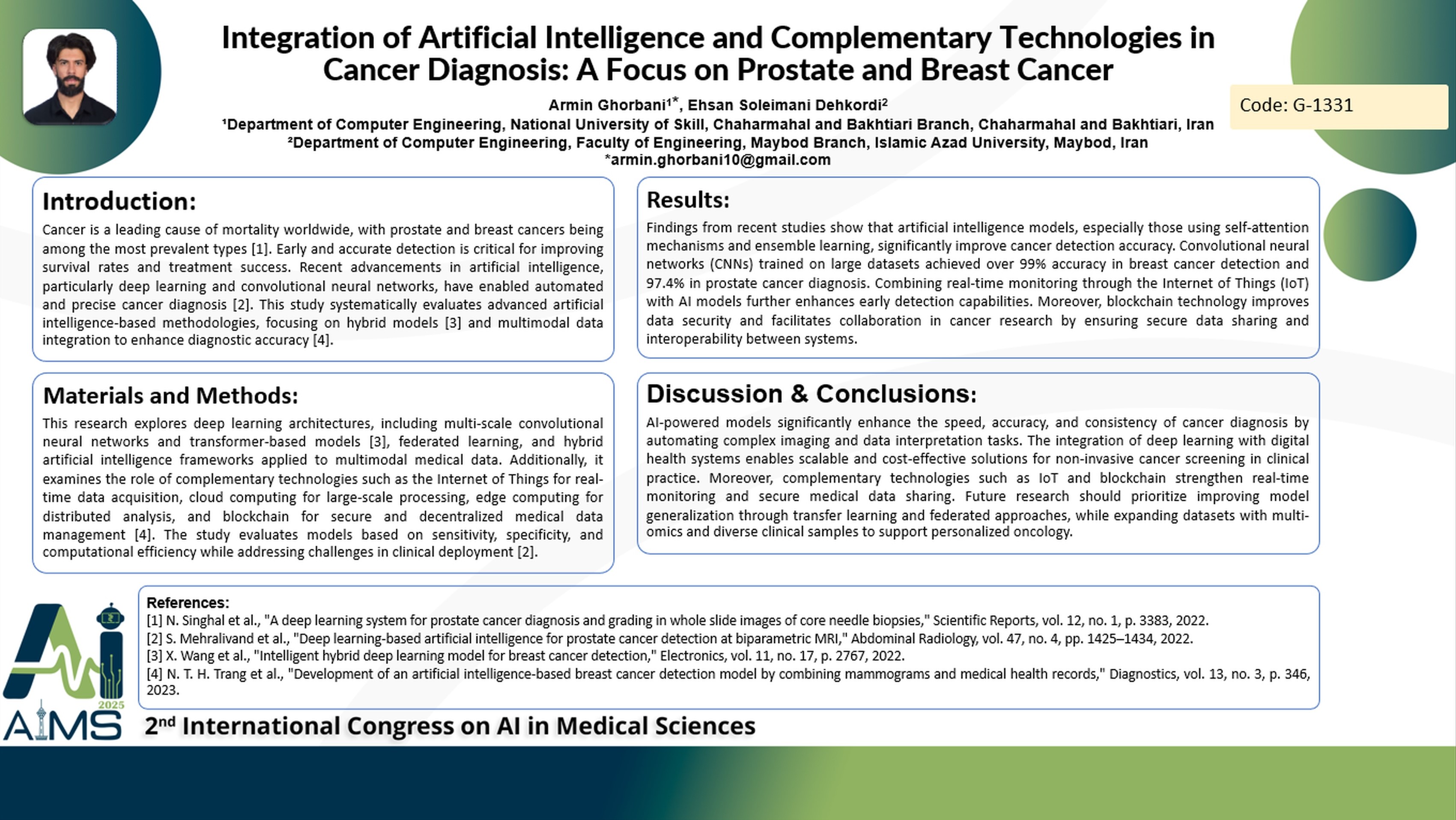Integration of Artificial Intelligence and Complementary Technologies in Cancer Diagnosis: A Focus on Prostate and Breast Cancer
Code: G-1331
Authors: Armin Ghorbani * ℗, Ehsan Soleimani Dehkordi
Schedule: Not Scheduled!
Tag: Biomedical Signal Processing
Download: Download Poster
Abstract:
Abstract
Background and aims: Cancer is a leading cause of mortality worldwide, with prostate and breast cancers being among the most prevalent types. Early and accurate detection is critical for improving survival rates and treatment success. Recent advancements in artificial intelligence, particularly deep learning and convolutional neural networks, have enabled automated and precise cancer diagnosis. This study systematically evaluates advanced artificial intelligence-based methodologies, focusing on hybrid models, multimodal data integration, and complementary technologies to enhance diagnostic accuracy. Method: This research explores deep learning architectures, including multi-scale convolutional neural networks, transformer-based models, federated learning, and hybrid artificial intelligence frameworks applied to multimodal medical data. Additionally, it examines the role of complementary technologies such as the Internet of Things for real-time data acquisition, cloud computing for large-scale processing, edge computing for distributed analysis, and blockchain for secure and decentralized medical data management. The study evaluates models based on sensitivity, specificity, and computational efficiency while addressing challenges in clinical deployment. Results: Findings indicate that artificial intelligence models utilizing self-attention mechanisms and ensemble learning significantly enhance cancer detection accuracy. Specifically, convolutional neural networks trained on large-scale labeled datasets achieved over 99% accuracy in breast cancer detection and 97.4% in prostate cancer diagnosis. Integrating real-time Internet of Things-based monitoring with artificial intelligence models improves early detection, while blockchain technology enhances data security and interoperability in collaborative cancer research. Conclusion: Advanced artificial intelligence-based models have improved the accuracy, speed, and reliability of medical imaging interpretation and histopathological analysis. The integration of deep learning with digital health technologies offers a scalable and cost-effective solution for automated, non-invasive cancer screening. Future research should focus on improving model generalization through transfer and federated learning, diversifying training datasets, and incorporating multi-omics data for precision oncology and personalized treatment strategies.
Keywords
Artificial Intelligence, Deep Learning, Cancer Diagnosis
